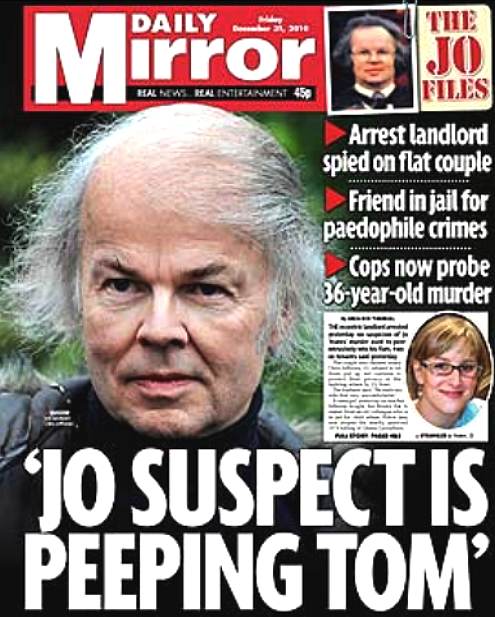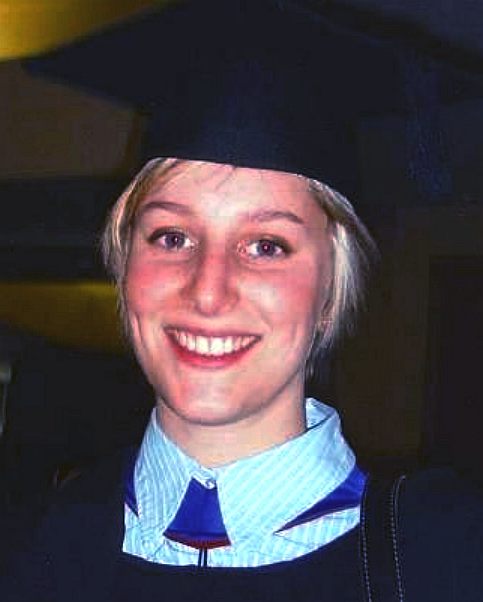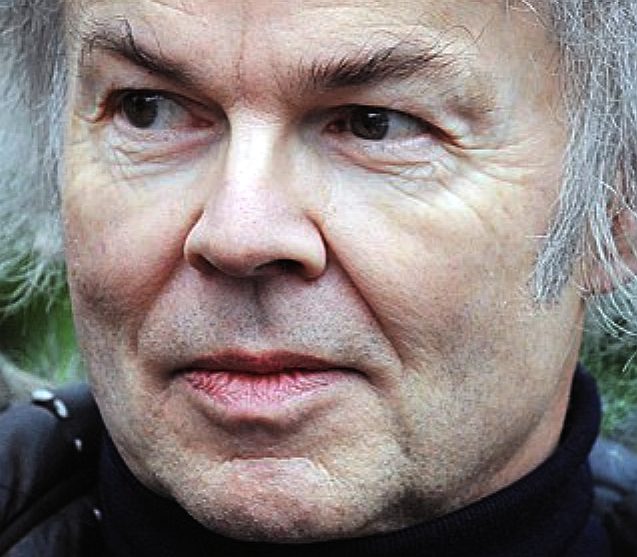|

News
A to Z directory, please click on the links below to find your favourite
news or to contact the media to tell your story about injustice,
prejudice, discrimination or corruption.
JO
YEATES MURDER
Joanna Clare "Jo" Yeates (19 April 1985 – 17 December 2010) was a 25-year-old landscape architect from Hampshire, England, who went missing on 17 December 2010 in Bristol after an evening out with colleagues. Following a highly publicised appeal for information on her whereabouts and intensive police enquiries, her body was discovered on 25 December 2010 in Failand, North Somerset. A post-mortem examination determined that she had been strangled.
The murder inquiry, named Operation Braid, was one of the largest ever police investigations in the Bristol area. The case dominated news coverage in the United Kingdom around the Christmas period as Yeates' family sought assistance from the public through social networking services and press conferences. Rewards amounting to £60,000 were offered for information leading to those responsible for Yeates' death. The police initially suspected and arrested Christopher Jefferies, Yeates' landlord, who lived in a flat in the same building.
Vincent Tabak, a 32-year-old Dutch engineer and neighbour of Yeates, was arrested on 20 January 2011. Media attention at the time centred on the filming of a re-enactment of her disappearance for the BBC's programme, Crimewatch. After two days of questioning, he was charged on 22 January 2011 with Yeates' murder. On 5 May 2011, Tabak pleaded guilty to Yeates' manslaughter, but denied murdering her. His trial started on 4 October 2011; he was found guilty of murder on 28 October 2011, and sentenced to life imprisonment with a recommendation he serve at least 20 years.
A memorial service was held for Yeates at the parish church in the Bristol suburb where she lived; her funeral took place near the family home in Hampshire. Several memorials were planned, including one in a garden she had been designing for a new hospital in Bristol.

Christopher
Jefferies
One
case of particular note, had it gone to trial, is that of Chris Jefferies.
The media had condemned him as guilty before any charge had been laid.
They did this on the basis of probability and to sell newspapers. There
was no thought of justice, or obtaining justice. They were pandering to
presumed public opinion. With the new statute preventing a trial Judge
from warning a Jury about convicting without the need for any physical or
other corroborating evidence, we feel that Mr Jefferies would without any
doubt have been convicted - since the law requiring the state to prove
guilt was reversed is cases where sexual assault is part of the crime.
This may breach the Article 6 requirement for a fair trial - since the
onus is now on the defence to prove innocence.
The
manner in which certain aspects of the case were reported by the British
media led to one television broadcaster being temporarily banned from
attending press conferences, and the instigation of legal proceedings
against several newspapers by both Yeates' former landlord, and the
Attorney General. It is bad enough that a young lady had been murdered,
but to seek to capitalise on that fact is not only immoral but criminal
irresponsibility.
Following a television news report on 4 January 2011 that criticised the
handling of the investigation, ITN reporters were banned by the Avon and
Somerset Constabulary from attending a press conference convened to give
updates on the murder case. The item, presented by journalist Geraint
Vincent claimed police had made little progress with their investigation,
and questioned whether they were following correct procedural methods. A
former murder squad detective told the report that "certain routine
inquiries" such as looking for fresh evidence at the crime scene were
not being carried out. ITN accused the police of attempting "to
censor what information we can broadcast" while the constabulary
filed a complaint with the Office of Communications, calling the broadcast
"unfair, naïve and irresponsible reporting". The police
subsequently lifted the sanctions against ITN, but said that they would
"not hesitate to adopt similar tactics in the future." Legal
action was also considered over a tweet revealing that Tabak had viewed
internet pornography showing erotic asphyxiation and bondage. The contempt
of court charges were dropped after the tweet was removed.
Writing in London's Evening Standard on 5 January 2011, the media
commentator Roy Greenslade expressed concern over a number of negative
articles that had appeared in newspapers concerning Yeates' landlord,
Chris Jefferies, following his arrest, describing the coverage as
"character assassination on a large scale". He cited several
examples of headlines and stories that had been published, including a
headline in The Sun describing Jefferies – a former teacher at Clifton
College – as weird, posh, lewd and creepy; a story from the Daily
Express quoting unnamed former pupils referring to him as "a sort of
Nutty Professor" who made them feel "creeped out" by his
"strange" behaviour; and an article from the Daily Telegraph,
which reported Jefferies "has been described by pupils at Clifton
College…as a fan of dark and violent avant-garde films". Jefferies
launched legal action against six newspapers on 21 April – The Sun, the
Daily Mirror, the Daily Star, the Daily Express, the Daily Mail and the
Daily Record – seeking damages for libel. On 29 July he accepted
"substantial" damages for defamation from The Sun, the Daily
Mirror, the Sunday Mirror, the Daily Record, the Daily Mail, the Daily
Express, the Daily Star and The Scotsman in connection with their coverage
of his arrest. In an interview following Tabak's conviction, Jefferies
commented: "It has taken up a whole year virtually of my life, that
period of time has meant that everything else that I would normally be
doing has been in abeyance." He criticised the government's plans to
change the law on legal aid, which he said would prevent people with
limited means from taking action against newspapers.
Dominic Grieve, the Attorney General for England and Wales, stated on 31
December 2010 that he was considering action under the Contempt of Court
Act 1981 to enforce the obligation of the media not to prejudice a
possible future trial. Criminology professor David Wilson commented on the
resonance of the murder case with the national news media: "The
British public loves a whodunnit ... It's a particularly British thing. We
were the first nation to use murder stories to sell newspapers and that
culture is more ingrained here than elsewhere." Wilson called Yeates,
a white female professional, an "ideal victim" for the media. On
1 January, Yeates' boyfriend Greg Reardon commented on the media coverage
surrounding the arrest of Christopher Jefferies: "Jo's life was cut
short tragically but the finger-pointing and character assassination by
social and news media of as yet innocent men has been shameful."
On 12 May 2011, the Administrative Court granted the Attorney General
permission to move a motion for committal for contempt of court against
The Sun and the Daily Mirror for the way they had reported the arrest of
Jefferies. On 29 July, the court (Lord Judge CJ, Thomas LJ & Owen J)
ruled that both newspapers had been in contempt of court, and fined the
Daily Mirror £50,000 and The Sun £18,000. The Lord Chief Justice of
England and Wales, Lord Judge stated that "in our judgment, as a
matter of principle, the vilification of a suspect under arrest is a
potential impediment to the course of justice." The publishers of The
Sun and the Daily Mirror subsequently appealed against their fines, but
the Mirror case was rejected by the Supreme Court of England and Wales on
9 March 2012, while The Sun withdrew its appeal.

PHONE
TAPPING
The
phone tapping scandal is another issue that brings the press and the
criminal justice system into disrepute. The press were breaking the law to
obtain private information and the Information Commissioner knew all about
it but were turning a blind eye - for who knows what reason. Yet again the
press cannot be relied on to report impartially and in accordance with the
laws of the land.
News
A to Z directory, please click on the links below to find your favourite
news or to contact the media to tell your story:
|


